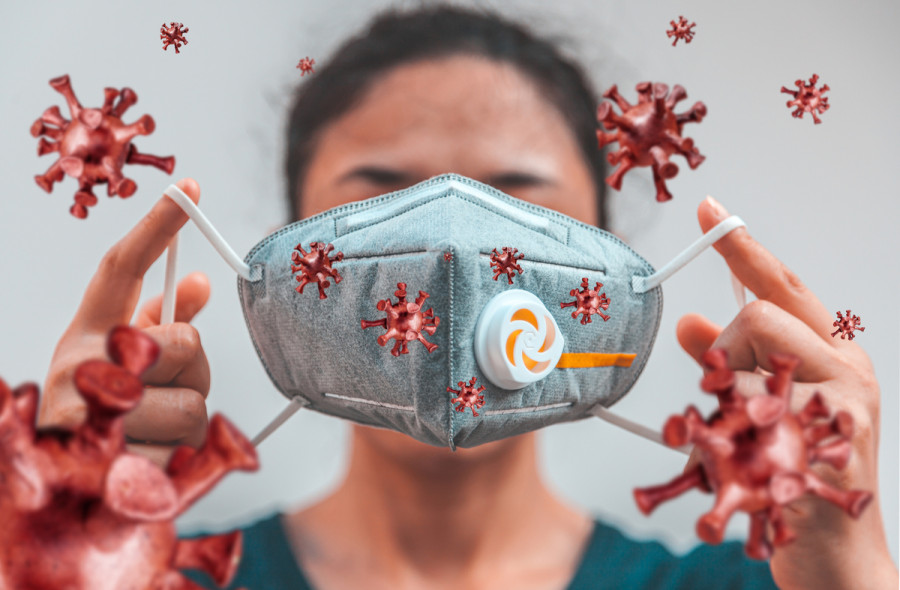Columns
The novel coronavirus poses new challenges
Equality and inclusion are critical to minimising the impact on the poor, marginalised and vulnerable.
Karuna Onta
The Covid-19 pandemic has raised new socio-economic and political problems. Nepal is not untouched by this crisis. On March 24, the government announced a lockdown in the country, which was recently slightly relaxed. While the restrictions on free movement assure some level of infection prevention, it primarily offers time for policymakers to strategise and plan for effective prevention, response and recovery mechanisms to minimise the impact of Covid-19.
As global evidence suggests, the effects of the pandemic have differential impacts on women, men and gender and sexual minorities, particularly those who are poor, belong to a certain age, caste or ethnicity, have physical or mental disability and reside in very remote rural areas. This crisis is also creating new vulnerable groups, such as returnee migrant workers. It is also seen to be exacerbating existing problems related to inequality, discrimination, conflict and violence.
Covid-19 response
The Gender in Humanitarian Task Team, chaired by UN Women, was activated on April 2 as part of the Covid-19 response in Nepal. It is made up of representation from gender focal points in all humanitarian clusters, as well as gender experts from a range of organisations. They aim to ensure that gender equality and social inclusion remain a core part of all humanitarian preparedness, response, and recovery—and that the voices of the poor, excluded, marginalised and vulnerable are consistently conveyed to the clusters and the Humanitarian Country Team.
The Task Team has been successful in establishing a forum to strengthen sharing and learning between a range of stakeholders; inform policymakers and help base their decisions on ground realities, and promote effective monitoring and robust data collection. The greatest added value of the forum is to open up space for Nepali women and representatives from other excluded and vulnerable groups to voice their issues. It has also been able to generate a virtual interface between UN agencies, senior government bureaucrats of multiple ministries, civil society organisations, donors and the media. The issues raised at the meetings are largely related to socio-economic aspects.
Women are bearing the brunt of Covid-19 impacts. They are generally poorer than men and are largely employed in the informal sector. They are suffering the worst of the economic crisis due to job losses. For instance, a United Nations Development Programme analysis estimates there is a 41 percent job loss among women compared to 28 percent for men.
Women’s unpaid care work burden has increased manifold during the pandemic. Increased household work, caring for children out of school and nursing sick, elderly and disabled family members are significant issues faced by women during the lockdown. Women trapped in abusive relationships are experiencing increased domestic violence. Women-led businesses and small and medium enterprises, women farmers, women engaged in the tourism sector, and women employed in the adult entertainment sector are impacted heavily by this crisis. Women’s access to sexual and reproductive health care is reduced due to the lockdown, leading to increased maternal mortality and unwanted pregnancies.
Regions that are among the poorest have come up with the highest number of Covid-19 cases, many of which are returnee migrants from India. A study conducted by the Foreign Employment Board estimates that 407,000 migrant workers from the Gulf and Malaysia will return within six months. They include women who are undocumented. Religious and gender minorities have also experienced stigma and discrimination. A significant loss of remittances will also negatively affect the economy at the family and national levels.
Quarantine centre management is increasingly becoming challenging for local governments. People with physical and mental disabilities are facing a lack of adequate medical supplies and care support. A study carried out by Handicap International in April suggests that women and children with disabilities are at greater risk of sexual abuse, exploitation and violence; the risks increased during the lockdown. There are also greater risks of negative coping mechanisms such as child marriage and hazardous labour.
Mental health problems are leading to a heightened amount of stress and anxiety resulting in suicide. According to a media report, 1,093 suicide cases were reported to the Nepal Police in the first 68 days of the lockdown, indicating a rise in suicide trends in the country. Without adequate psychosocial counselling and medical support, the number is estimated to further increase.
Expanded network
In two months, the task team has been able to extensively expand the network of organisations working to achieve equality, empowerment, protection and promotion of the rights of the poor and vulnerable. It helped prepare a Charter of Women’s Demands which was submitted to the government of Nepal for necessary action, influenced local governments to provide relief packages to vulnerable people without identity cards and expedited the development of a national plan on the UN Security Council Resolution 1325 (which acknowledges the skewed impact women and children face from security issues). It also provided an opportunity for the government to share its plans, strategies and programmes with those working in humanitarian preparedness, response and recovery. Media coverage of issues related to women and the vulnerable has been remarkable.
Yet, there is always room to do more. The effectiveness of the task team can be enhanced by honing the discussion more closely to the Covid-19 context and firming up concrete actions against each of the issues raised. The National Response Plan could include adequately resourced targeted humanitarian assistance for the most vulnerable among women, men, gender and sexual minorities and people with disability, and those belonging to marginalised castes and ethnicities.
***
What do you think?
Dear reader, we’d like to hear from you. We regularly publish letters to the editor on contemporary issues or direct responses to something the Post has recently published. Please send your letters to [email protected] with "Letter to the Editor" in the subject line. Please include your name, location, and a contact address so one of our editors can reach out to you.




 18.12°C Kathmandu
18.12°C Kathmandu















